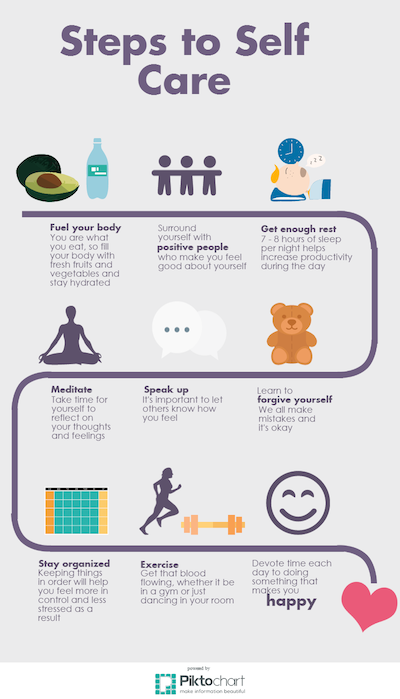depression as a message that your body is craving health
In my last blog what is your depression trying to tell you?, I talked about emotions being helpful messengers informing us of what our unmet needs are. For example, resentment might be an indicator that we are over-committing ourselves and needing to tighten up our boundaries with other people. Pervasive boredom that leaves us doing that never-ending Instagram scrolling might be a messenger letting you know that you feel a lack of challenge or adventure in your life. Whatever the emotion, you can usually trace it back to an unmet need. In this way, our emotions are friends trying to help us be healthy and happy--not enemies that need to be conquered or stuffed down.
We also have to take into account that humans are complex, holistic beings and the state of our physical body can have a big impact on our emotional and even spiritual health. If you are struggling with depression, it's possible that one message your depression is trying to tell you is that your body is craving a higher degree of health. I would encourage you to consider these thoughts about how your physical health may be contributing to your symptoms, as well as some self-care tips below that can help decrease your symptoms.
Get a physical: You may know some of the more classic physical symptoms of depression, such as changes in appetite (overeating or not being hungry), changes in sleeping (insomnia or oversleeping), and fatigue or lack of energy. But did you know that in some people, depression can manifest in the body as headaches, stomach and digestive issues, or pain in your back or muscles? A lot of the symptoms of depression are similar to other health conditions, and sometimes depression can be exacerbated by underlying health conditions, so it's always a good step to consult with your doctor and get an updated wellness exam to rule out any of these other conditions.
Get some sleep: Problems with sleep and depression are intimately connected. Sometimes sleep issues can be a trigger that actually causes depression or exacerbates it, and other times the depression can be the trigger for insomnia or other sleep issues. If you are in a stage of life where you have interruptions to your sleep cycle, such as doing shift work at night or being a new parent, this could be a big contributor to depression or anxiety. If there are changes you can make to help promote 7-9 hours a night of restful sleep, let this be one of the first things you address in treating depression. For suggestions of how to get restful sleep, check out this helpful article with 21 ways of how to sleep smarter.
Get good nutrition: Nutritional psychiatry is a field on the rise for good reason--the link between food and mood is a strong one. Research has shown that "An unhealthy diet might make us depressed, and depression, in turn, makes us feel even sicker." There are a million diets and eating plans out there and it can be easy to feel overwhelmed by that. I would encourage you to start with what is undisputed: our bodies do well when we get balanced meals of real, unprocessed foods, including a lot of fruits and vegetables. If you are currently not eating whole, real foods or if you are eating irregular, meager meals, start with trying to get at least one balanced meal a day, and work your way up to three meals a day of mostly healthy food. Your food is literally the building blocks your body needs to produce the chemicals to help you feel good, so you've got to give it good materials to work with.
Get some movement: This is another one you are probably familiar with, but that many of us (myself included!) can have a hard time putting into practice. It can be tough because when you are depressed, motivation can be hard to come by, and sometimes just doing things like getting in a shower or getting dressed can feel like they take all your energy. But the bang for your buck is huge for this one: for those with mild to moderate depression, studies have shown that exercise can be as effective as an antidepressant for some people. Other studies have shown that exercising for 20 minutes-a-day cut the risk of developing depression by one third. Does this mean that exercise is a cure all for depression. Not at all, but it is an important ingredient that can help you start feeling improvement fast.
The benefits to these self-care strategies are many. Not only is this helping your physical body get its needs met to literally produce the feel-good chemicals your need, but doing these things will help you feel proud of how you are taking care of yourself, and giving you a feeling of accomplishment. When you take the time to prepare healthy food for yourself, you are literally demonstrating to yourself that you are worth it. When you go outside and walk down the block and back, you are cooperating with self-love and sending that positive message to yourself that you are valuable.
These tips can be a great place to get started in changing your life and helping yourself feel better. And reaching out for help can be another great place to start. Counseling can provide the encouragement, accountability, and structure to help you get momentum to start seeing things change for the better for you. Give me a call today for a free 15 minute phone chat to see if I might be a good fit to help you start feeling better.
